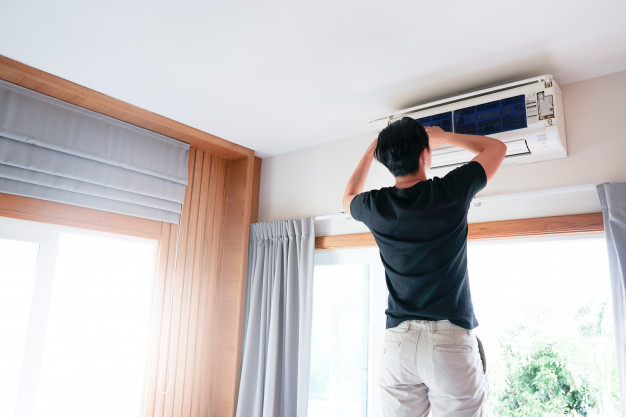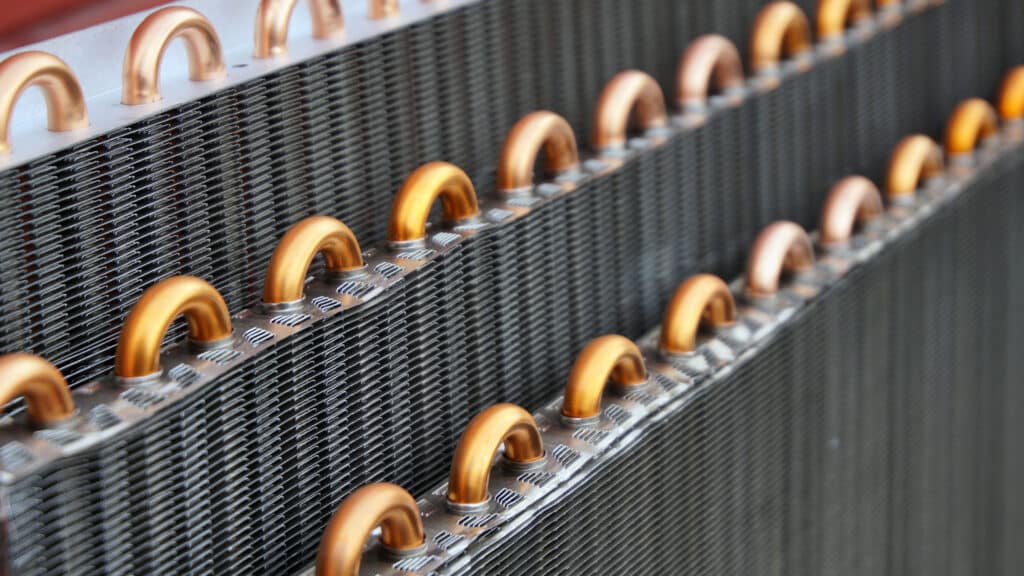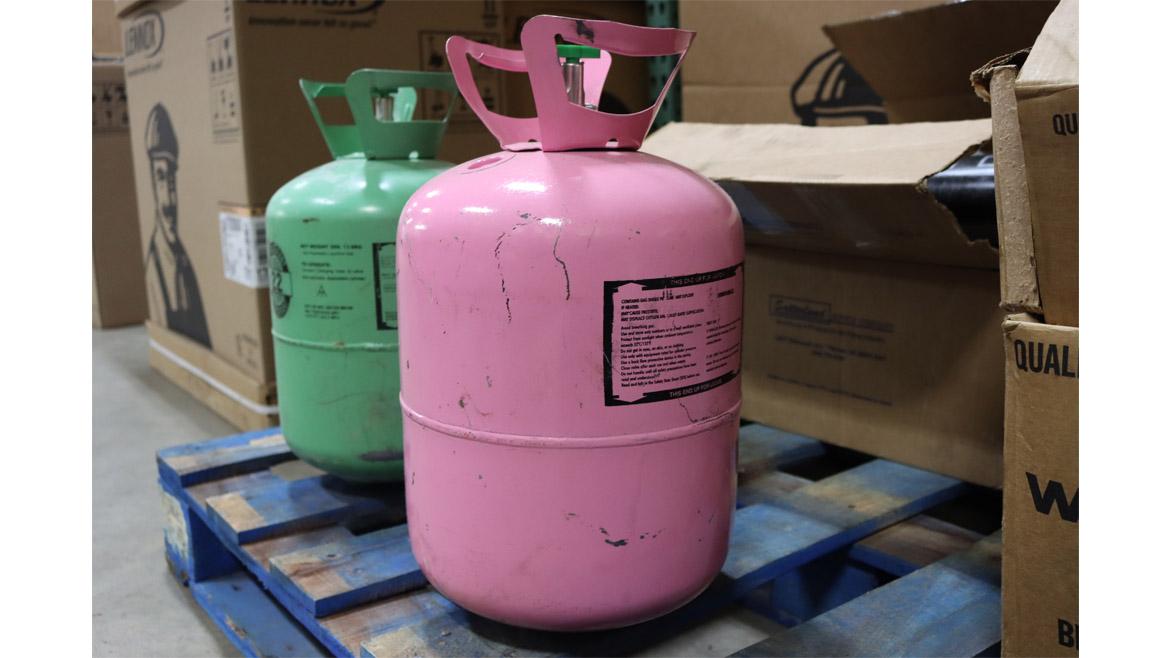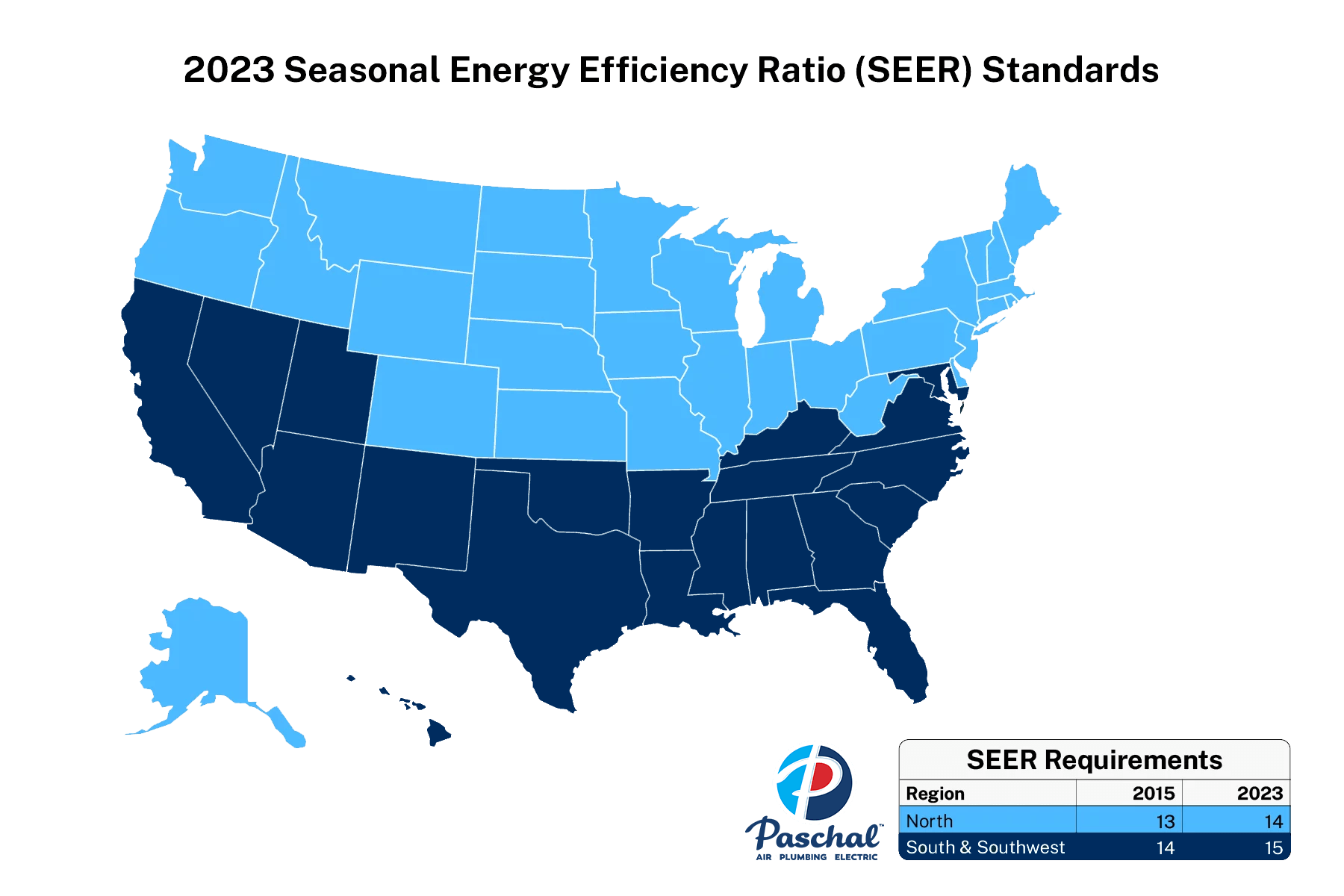Want to save with Paschal? Don’t miss our current offers and specials

Want to save with Paschal? Don’t miss our current offers and specials
Return to Paschal Resource & Education Hub

No one wants to experience the discomfort of a malfunctioning air conditioning system, especially during the peak of a scorching summer. At Paschal Air, Plumbing & Electric, we understand the anxiety of having your AC on the blink, and we’re here to help. This comprehensive guide aims to help you decide whether to replace a damaged evaporator coil or the entire air conditioning unit. We will provide a thorough and technical discussion of all the factors you need to consider to make an informed decision.
In every air conditioning unit, the evaporator coil is an essential component. This coil circulates the cooling refrigerant that absorbs the heat from your home’s air. However, due to constant wear and tear, the inner lining of these coils can erode over time, leading to potential leaks.
Cooling refrigerant circulates within the evaporator coil. Over time, the constant flow of this refrigerant erodes the coil’s inner lining, subsequently weakening the coil itself. This weakened state makes it susceptible to developing refrigerant leaks.
When a leak develops, the coil becomes less effective at its primary task – cooling the air in your home. Repairing the leak can be a stop-gap solution, but in most cases, it is more cost-effective to replace the coil.
For units utilizing R-22 refrigerant, the decision leans heavily towards replacing the entire AC unit rather than repairing the leak or replacing just the coil.

R-22, also known as Freon, is a type of refrigerant that was commonly used in air conditioners manufactured before 2010. This refrigerant, while effective for cooling, has a significant downside: it’s detrimental to the environment, specifically the ozone layer.
Due to these environmental concerns, production of R-22 has been phased out as per the U.S. Environmental Protection Agency (EPA) guidelines. This phase-out has driven up the price of R-22 due to its scarcity, making it very expensive to recharge your AC unit with this type of refrigerant.
If your evaporator coil leaks and your AC unit uses R-22, the cost to replace the coil and recharge your unit with more R-22 can be substantial. Under these circumstances, it’s usually more economical to replace the entire AC unit with a model that uses a more environmentally friendly and affordable refrigerant.

When considering AC repair or replacement, it’s important to think about the compatibility of the various parts in your system. Your AC unit comprises multiple components that need to work seamlessly together to provide efficient cooling.
One of the risks with replacing only one component (like the evaporator coil) is the potential mismatch with other parts, especially in older units. This mismatch occurs when the replacement part, typically more modern and efficient, is not fully compatible with the older components still in use.
This mismatch can result in several issues, including:
Ultimately, an incompatible component may cause your entire system to fail sooner than expected.
Your AC system relies on two different types of coils to function effectively: the condenser coil, located in the outdoor unit, and the evaporator coil, located inside your home.
These two coils work together in harmony to cool your home. The evaporator coil absorbs heat and humidity from the air inside your home, while the condenser coil expels that heat outdoors. Despite being separate components, their functions are interlinked and crucial for the proper operation of your AC unit.
Replacing just the evaporator coil can lead to problems. A common rule of thumb in the industry is if your AC unit is over 8 years old, it may be more beneficial to replace the entire unit rather than a single component. The reason behind this advice is that air conditioners have an expected lifespan of around 10 to 15 years. If your AC is already nearing the 8-year mark, investing in significant repairs or part replacements might not be a wise financial decision.
In addition, if one coil is replaced and the other is much older, the older coil might struggle to keep up with the new one. This can lead to system inefficiency, additional wear and tear on the older coil, and potential system failure. In the end, you may find yourself paying for the coil replacement and a new AC unit.
The efficiency of air conditioners is measured by a Seasonal Energy Efficiency Ratio (SEER) rating. AC units receive a SEER rating between 13 and 21, with higher ratings indicating greater energy efficiency.
The federal government currently mandates that new air conditioners have a minimum SEER rating of 14. However, older units, especially those built before this standard was established, often have SEER ratings below 14.
If your evaporator coil fails and your AC has a lower SEER rating, you might face difficulties finding a suitable replacement coil. Coils compatible with a SEER rating of 12 or lower are likely obsolete and challenging to find.
Replacing your lower SEER coil with a higher-rated one could lead to a mismatch, disrupting the performance of your AC unit. In the not-so-distant future, you might have to deal with additional issues with your other coil or your entire unit.
Investing in a new AC unit with a higher SEER rating will not only solve your immediate cooling problem but also provide long-term savings with lower energy bills.

At Paschal Air, Plumbing & Electric, we understand how crucial it is to have a well-functioning air conditioner during the hot summer months. Whether you need advice on repairing your evaporator coil, replacing your entire unit, or you’re unsure of the best course of action, our team of experienced professionals is ready to assist you.
Your comfort is our priority, and we’re committed to providing you with the best solution for your specific situation. If you want to learn more about AC unit replacement or discuss your AC problems, don’t hesitate to reach out to the experts at Paschal.
We love helping you solve your HVAC, Plumbing & Electrical problems, big and small. Follow us for more tips and tricks for your home, and remember: for all your home service needs, schedule your next appointment with the professionals at Paschal.
